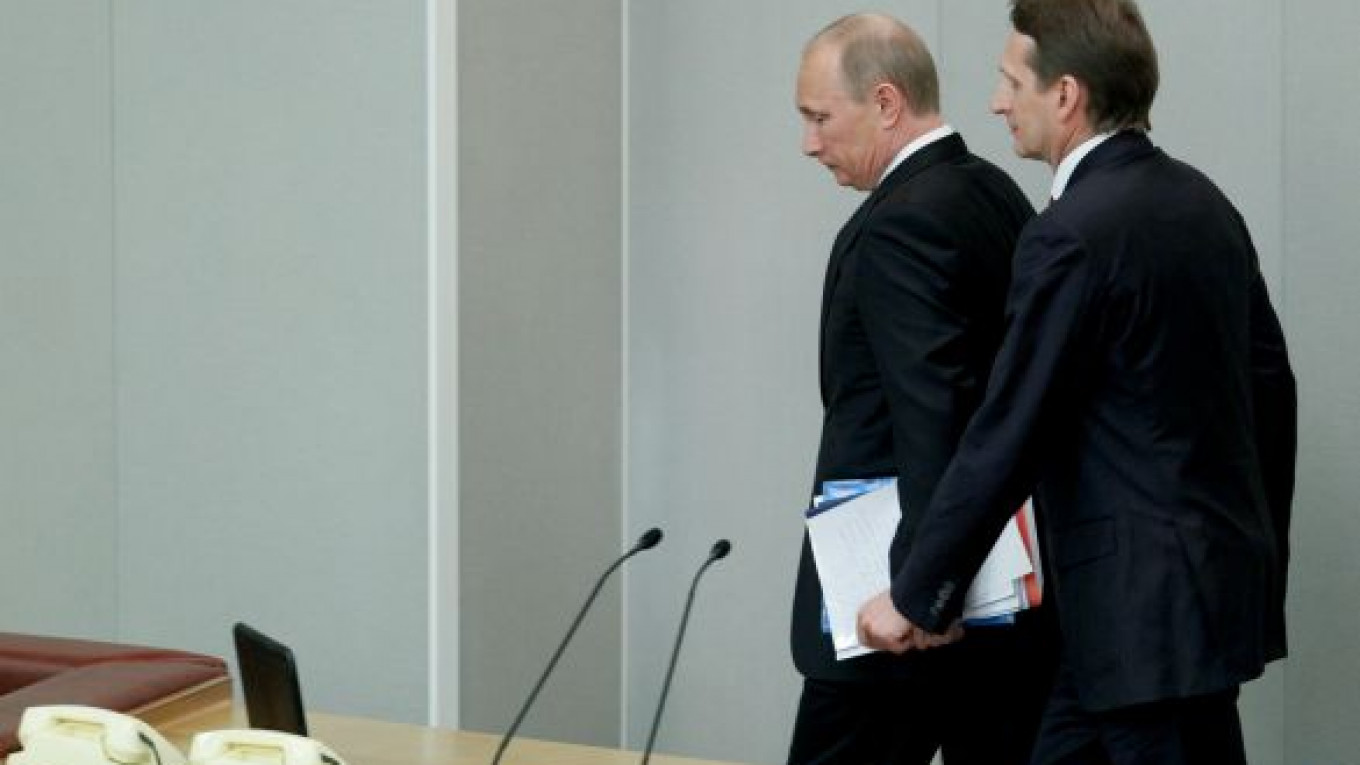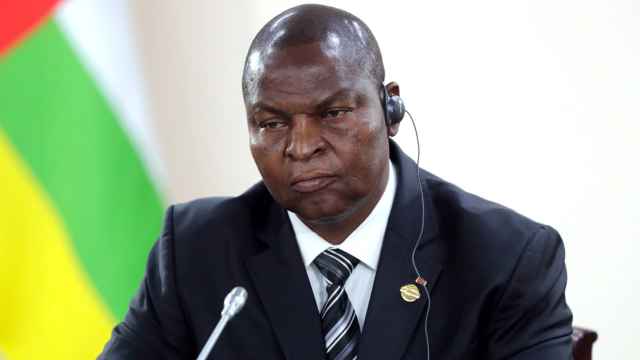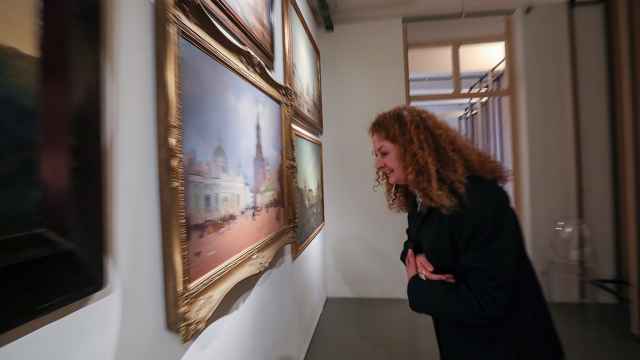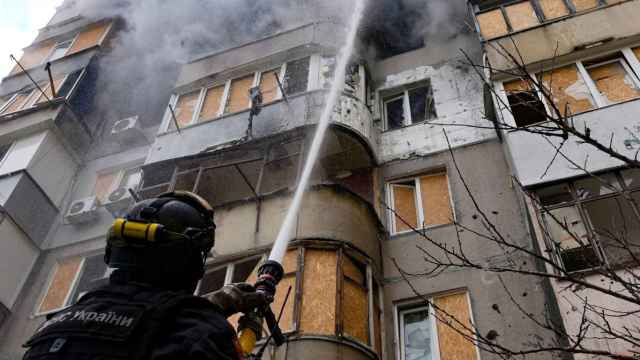Prime Minister Vladimir Putin on Wednesday reiterated the key goals of his future presidency and commented specifically on Siberia as well as risks posed by shale gas production in the United States.
President-elect Putin — who is weeks away from beginning a third Kremlin stint — also said he was open to a debate on banning presidents from serving more than two terms.
The statements came as part of Putin's final report on Cabinet performance to the State Duma in his current capacity.
After he said Russia emerged from the global crisis a stronger country, he named his first priority as president to make the country more populous.
Preventing the population level from dropping during the crisis was the "main" achievement of his Cabinet, Putin said.
"We didn't allow the crisis to cancel out the positive demographic trend," he said.
The second of his future goals, which Putin first published in a series of newspaper articles during the winter presidential campaign, will be the development of the country's Far East and Siberia, he said. The Cabinet has been considering a plan to create a special agency to take care of the vast, resource-rich region that has had its number of residents decline in the past decades.
Next, will be creating well-paying jobs and building an economy immune to outside shocks, Putin said. As one of the risks in this area, he named the booming production of shale gas in the United States. By tapping that new source of fuel, the United States reshaped the global market and made prices tumble, which threatens Russia's biggest cash cow, Gazprom.
Putin also said he would continue to build economic ties with Belarus and Kazakhstan, the countries that joined Russia in a free trade bloc called the Unified Economic Space. The greater cooperation is part of an effort to raise Russia's global economic profile, he said.
Some other measures to spur economic activity could include appointing a federal prosecutor in charge of protecting the rights of the business community, Putin said. He said he discussed this proposal on Tuesday with President Dmitry Medvedev, who first voiced it that day.
In a prelude to enunciating the goals of his presidency, Putin highlighted the achievements of his Cabinet, naming last year's lowest ever inflation rate and gross domestic product that surpassed the pre-crisis level of 2008, among other things.
While answering questions, Putin for the first time made public his stance on amending the Constitution to limit presidents to no more than two terms.
"This is a reasonable thing," he said. "It is logical to give it a thought."
The amendment that the political opposition has mulled would take out the word "consecutive" from the phrase that prohibits presidents from serving two consecutive terms. Putin used the loophole to run for a third term after effectively handing the presidency over to loyalist Medvedev for one term.
In a slap in the face, Putin saw the A Just Russia faction walk out when he expressed disapproval for a hunger strike that the party's candidate has been doing in protest of what the party says were violations in the recent mayoral election in Astrakhan.
Responding to criticism from the Communists after his speech, Putin grew extremely agitated and raised his voice to yell about cattle farming at one point — reacting to what appeared to be exclamations of doubt from the Communist faction.
"I am telling you the truth!" he shouted, wagging his finger. "You can't fail to know it. There was no such thing as breeding cattle especially for meat in the Soviet Union. They just slaughtered the cows that stopped giving milk."
Police detained opposition leader Sergei Udaltsov as he and about 100 other people tried to rally outside the State Duma hours before Prime Minister Vladimir Putin arrived for his speech. Sidewalks near the building had been under heavy security prior to Putin's speech.
(MT)
A Message from The Moscow Times:
Dear readers,
We are facing unprecedented challenges. Russia's Prosecutor General's Office has designated The Moscow Times as an "undesirable" organization, criminalizing our work and putting our staff at risk of prosecution. This follows our earlier unjust labeling as a "foreign agent."
These actions are direct attempts to silence independent journalism in Russia. The authorities claim our work "discredits the decisions of the Russian leadership." We see things differently: we strive to provide accurate, unbiased reporting on Russia.
We, the journalists of The Moscow Times, refuse to be silenced. But to continue our work, we need your help.
Your support, no matter how small, makes a world of difference. If you can, please support us monthly starting from just $2. It's quick to set up, and every contribution makes a significant impact.
By supporting The Moscow Times, you're defending open, independent journalism in the face of repression. Thank you for standing with us.
Remind me later.






